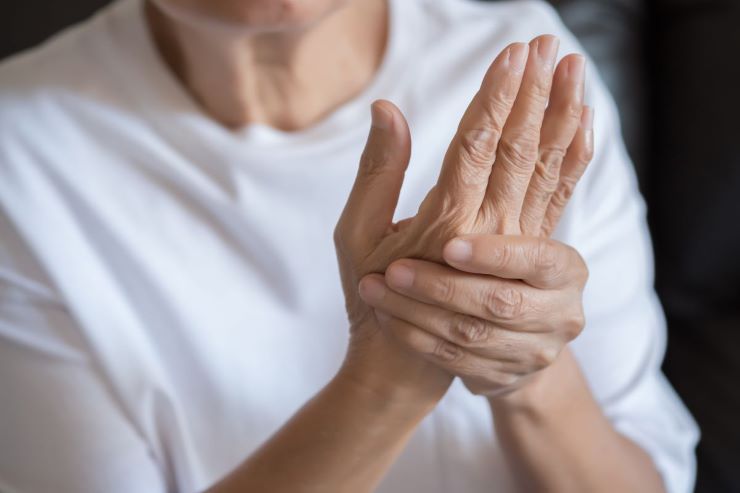What To Know About How Neuropathy Impacts A Senior's Health
Neuropathy affects millions of seniors across the United States, creating significant challenges for their daily lives and overall well-being. This condition, which involves damage to the peripheral nerves, can dramatically alter how older adults experience sensation, movement, and independence. Understanding how neuropathy impacts seniors is crucial for families, caregivers, and healthcare providers who want to support aging loved ones effectively.

How Neuropathy Impacts A Senior’s Health
Neuropathy creates a cascade of health effects that extend far beyond simple nerve discomfort. For seniors, the condition often begins subtly but progressively affects multiple body systems. The peripheral nerves, which carry signals between the brain, spinal cord, and the rest of the body, become damaged or dysfunctional, leading to communication breakdowns throughout the nervous system.
The cardiovascular system can be significantly affected when autonomic nerves are involved. Seniors may experience irregular heart rhythms, blood pressure fluctuations, and poor circulation. Digestive health also suffers, as damaged nerves can slow gastric emptying and cause unpredictable bowel function. These systemic effects compound existing age-related health challenges, making comprehensive management essential.
Balance and coordination deteriorate as sensory nerves lose their ability to provide accurate feedback about body position. This creates a dangerous cycle where seniors become less active to avoid falls, leading to muscle weakness and further balance problems.
Neuropathy Signs in Seniors
Recognizing neuropathy symptoms in older adults requires attention to both obvious and subtle changes. The most common early signs include tingling, numbness, or burning sensations in the hands and feet. These symptoms typically start in the extremities and gradually progress toward the center of the body.
Seniors may notice difficulty with fine motor tasks like buttoning clothes, writing, or handling small objects. Walking becomes challenging as foot sensation diminishes, making it harder to judge surface textures or detect obstacles. Many older adults describe feeling like they’re wearing thick socks or gloves even when their skin is bare.
Sleep disturbances frequently accompany neuropathy, as discomfort intensifies during nighttime hours. Seniors may experience muscle cramps, restless legs, or sharp shooting sensations that interrupt rest. Temperature sensitivity also develops, with some individuals becoming extremely sensitive to cold or heat.
Changes in skin appearance, including dryness, color variations, or slow-healing wounds, particularly on the feet, signal advancing neuropathy. Digestive issues, dizziness when standing, and sexual dysfunction may also indicate nerve involvement beyond the extremities.
What Causes Neuropathy in Seniors
Multiple factors contribute to neuropathy development in older adults, with diabetes being the most prevalent cause. High blood sugar levels damage small blood vessels that supply oxygen and nutrients to nerves, creating progressive deterioration over time. Many seniors have undiagnosed diabetes or prediabetes, making blood sugar management crucial for prevention.
Autoimmune conditions become more common with age and can trigger inflammatory responses that attack healthy nerve tissue. Rheumatoid arthritis, lupus, and other inflammatory disorders create ongoing nerve damage through chronic inflammation.
Nutritional deficiencies, particularly B vitamins, become more frequent in seniors due to absorption problems, dietary restrictions, or certain conditions. Vitamin B12, B6, and folate deficiencies directly impact nerve health and function.
Alcohol consumption over many years can cause toxic neuropathy, while various chemicals, heavy metals, and environmental toxins accumulated throughout life may contribute to nerve damage. Some seniors develop neuropathy from infections like shingles, which can cause lasting nerve damage even after the initial infection resolves.
Age-related changes in metabolism, circulation, and cellular repair mechanisms make seniors more vulnerable to developing neuropathy from causes that might not affect younger individuals.
Neuropathy Discomfort in Seniors
The discomfort associated with neuropathy varies significantly among seniors, ranging from mild annoyance to debilitating difficulties. Many describe burning, stabbing, or electric shock-like sensations that can be constant or intermittent. These sensations often worsen at night, disrupting sleep and affecting overall quality of life.
Numbness creates its own set of challenges, as seniors may not notice injuries, temperature extremes, or pressure sores developing. This loss of protective sensation increases infection risk and delays wound healing. Some individuals experience hypersensitivity, where light touch or clothing contact causes intense discomfort.
Muscle weakness and cramping accompany sensory symptoms, making daily activities increasingly difficult. Simple tasks like opening jars, climbing stairs, or maintaining balance become major challenges. The unpredictable nature of neuropathy symptoms creates anxiety and frustration for many seniors.
Social isolation often develops as seniors limit activities to avoid embarrassment or potential injury. Depression and anxiety frequently accompany chronic neuropathy discomfort, creating additional health challenges that require attention.
Neuropathy Discomfort Management in Seniors
Effective neuropathy management for seniors requires a comprehensive approach addressing both symptoms and underlying causes. Blood sugar control remains paramount for diabetic neuropathy, often requiring dietary changes, regular monitoring, and lifestyle modifications tailored to senior needs.
Physical therapy plays a crucial role in maintaining strength, balance, and flexibility. Specialized exercises help preserve nerve function while building compensatory skills for managing daily activities safely. Occupational therapy provides practical strategies for adapting homes and routines to accommodate changing abilities.
Nutritional support through supplementation or dietary changes can address deficiencies contributing to nerve damage. Regular foot care becomes essential, including daily inspections, proper footwear, and professional care for nail trimming and callus management.
Complementary approaches like acupuncture, massage therapy, and transcutaneous electrical nerve stimulation (TENS) units provide relief for many seniors. Stress management techniques, including meditation, gentle yoga, or counseling, help address the emotional aspects of chronic conditions.
Environmental modifications, such as improved lighting, grab bars, and non-slip surfaces, enhance safety and independence. Temperature regulation through appropriate clothing and environmental controls helps manage sensitivity issues.
Regular monitoring by healthcare providers ensures prompt identification of complications and adjustment of management strategies as conditions evolve. Early intervention often prevents progression and maintains better quality of life for seniors facing neuropathy challenges.
This article is for informational purposes only and should not be considered medical advice. Please consult a qualified healthcare professional for personalized guidance and treatment.




